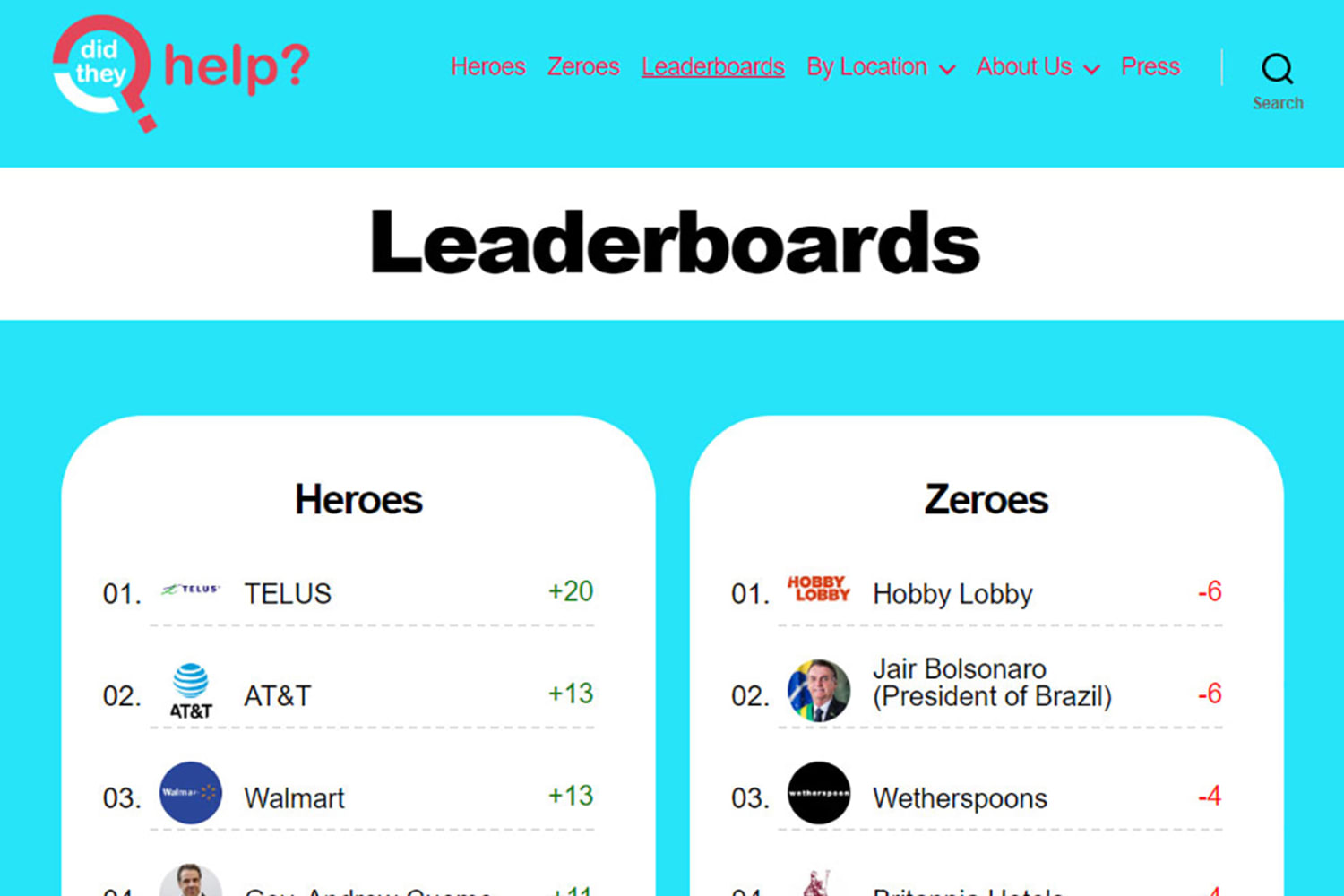Why did you decide to launch Did They Help?
First and foremost, I wanted to create a collective memory for the whole world to use. For a long time, I’d witnessed corporations, billionaires and public figures put profits ahead of their staff or use their clout or position to benefit in times of crisis.
Like everyone else, I felt outrage towards these companies. And while they received the appropriate bad press—it’s not like this is going unseen or undocumented—I think far too often this societal rage that we felt was short-lived. Within a few days, maybe a week, we’d go back to these companies and line up, eager to spend money on the latest product.
And sure, people would try to keep tabs, but the tabs that I saw people keeping just weren’t sustainable; I saw people keeping paperless tabs on Twitter, and others crowding around them. And I just couldn’t believe that this was the best that the internet had to offer. I thought, well, there’s got to be a website for this, it can’t just be in the hands of a few individuals on Twitter.
At the same time, I’d also been noticing that stories about these companies and individuals would get lost in the churn of a 24-hour news cycle. Companies would commit one foul, and then as quickly as they would commit it, it would be replaced by that of another company. Or they would do something else which would then trump it or would find another way of diverting our attention.
So a site like Did They Help?, I thought, would provide some form of organized access to that information on a particular company or public figure. What we’re trying to do is give you a profile of a company or person that’s catalogued from information on news sites about this specific entity or individual. And now all you have to do is search for a company or public figure and, bam, you can be taken to their profile page, which lists their good and bad deeds.
Why is it important to help consumers catalogue corporate behavior?
Now more than ever, the divide between multibillionaires and the rest of society is bigger—or at least it feels that way. There was a stat I saw recently: while millions around the world have lost their jobs during [the pandemic], the wealth of the uber-rich grew by $308 billion, and Jeff Bezos’ personal wealth grew by $24 billion. And that’s all whilst they continued to profit before safeguarding their employees, or by taking advantage of developing countries, or some other scandal—it’s endless.
But now what I think is different, as opposed to before [the pandemic], is that everyone is starting to care collectively about the bad practices of these companies and public figures. The whole world is going through this pandemic and we’re all suffering together; it’s imbued us with a sense of justice.
Media whistleblowers have always been calling out brands, so I don’t think that this is a novel endeavor. But the format in which we’re doing this, and the way that we’re cataloguing it—as opposed to the information we’re providing—I think that’s what’s different now.
We’ve seen brand offerings built around tenets like sustainability and cruelty-free. Going forward, do you think brands will be expected to trade on moral credit, beyond the value of their products alone?
Yes, in a way. The reputation of a company as a whole will have to be steeped in their good deeds
But I don’t know what that’s going to look like. We have a ranking system [on Did They Help?] but it’s incredibly simplistic. I wouldn’t say that that’s the best way to do it. We added the ranking system because we felt that it helped some people quantify actions of a company; the points are there to help make sense of what we’re reading.




